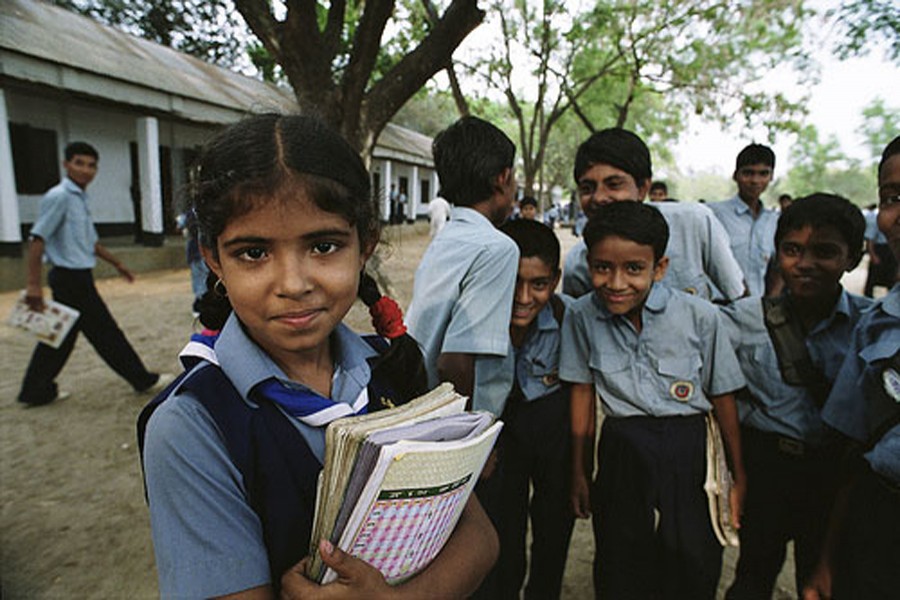So, Bangladesh is going to have an early dose of politics like immunisation programmes against the deadly disease of militancy. The immunisation programme of vaccination and oral therapy of vitamin A have worked wonder in preventing child mortality by developing immunity against six diseases. Here the target is mainly militancy and the immunisation suggested is political units at the secondary school level. Can militancy be considered one of the biblical seven sins? In that case, the therapy of student politics will have done a much needed service to society. On the health front, the immunisation programme involves babies and children of tender age. If politics is taken into consideration, secondary school students can be considered children not newborns. Well, primary students could qualify for that status. So, why not start a few courses of political immunisation from the primary stage?
With the introduction of student politics-more precisely allowing student fronts to do their respective brand-school will abuzz with greater activities. They will compete for establishing their domination over each other. Suddenly student leaders at this level will discover their importance and could not care less if they studied well enough or not. Because they are to perform a more important duty to the country, they cannot be blamed for seeking some favour such as postponing exams if they were not prepared enough or even the right to copying in the examination hall or even receiving answers supplied from outside.
There will be no reason to be surprised if their guardians also throw their weight behind such activities. Already it has been observed that parents even remonstrate their sons and daughter for not obtaining leaked question papers for which fat amounts were given. Some parents are super active in that they do not leave the responsibility with their wards. They themselves procure for their near adult children question sets systematically leaked before public examinations and admission tests to public universities, medical colleges and other educational institutions.
There is something mystical about politics. When election to the Dhaka University Central Students' Union is not held for ages, this hyperactive move to introduce politics to schools can be viewed as a step towards giving the right shape to student politics because an earthen pot can be likewise given the desired form when the earth is pliable. Initiated early with the nuances of politics, they are expected to emulate their seniors in the business of student politics. How about the tender involving school's development programmes and even work orders of local government? After all, today's politics cannot be practised with empty pockets. Usually, politics thrives on supplies from outside unlike in the past when politicians collected subscriptions and even generously contributed to the fund.
When money is at stake, violence is not far behind. School students will train their hands at muscle power in no time. They may even challenge the monopoly rights by their elders. If the recent trends of gangsterism among teenagers in some areas of the city, including posh Uttara, is any guide, the desire to prevail over opponents within the rank or against rival student fronts cannot be ruled out. Violent and cruel, they are a breed of neo-mafia who are out to eliminate all opposition. With legal sanction to go about student politics, if many of the leaders do not develop similar attitude, it will be extremely surprising. Once this done, there is a chance of conflict of interests between intra and internal groups. This may then extend up to the school authorities where teachers will require to toe the party line or suffer the consequences. How this will affect the education environment needs no guessing. It is exactly this free-for-all situation that is what really looks to produce consternation among people who are not particularly fond of infiltration of politics in all areas of life.


